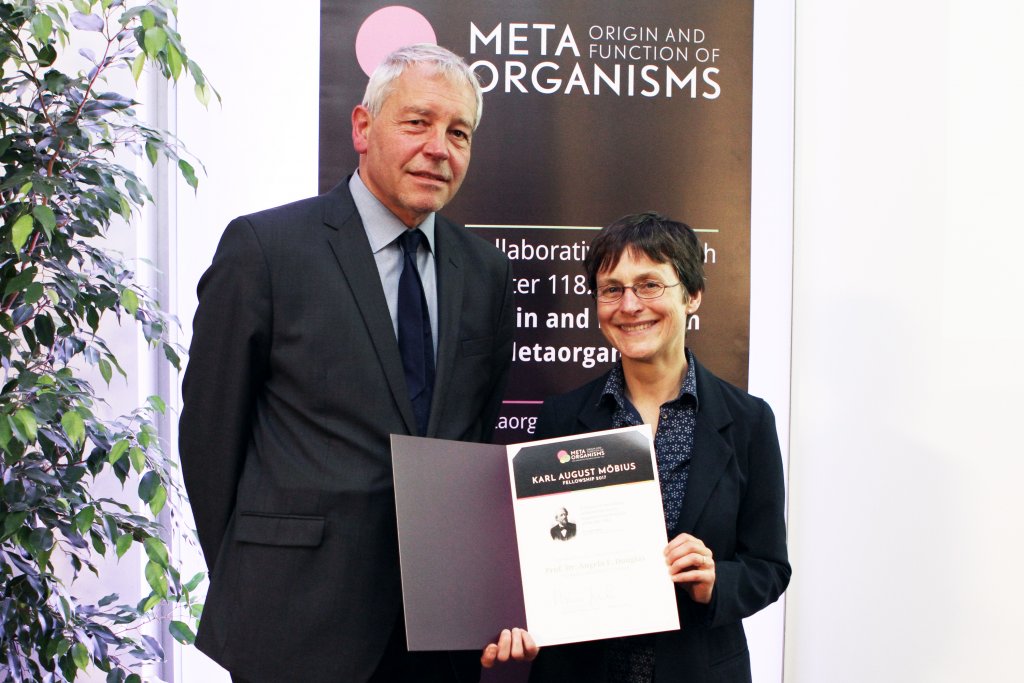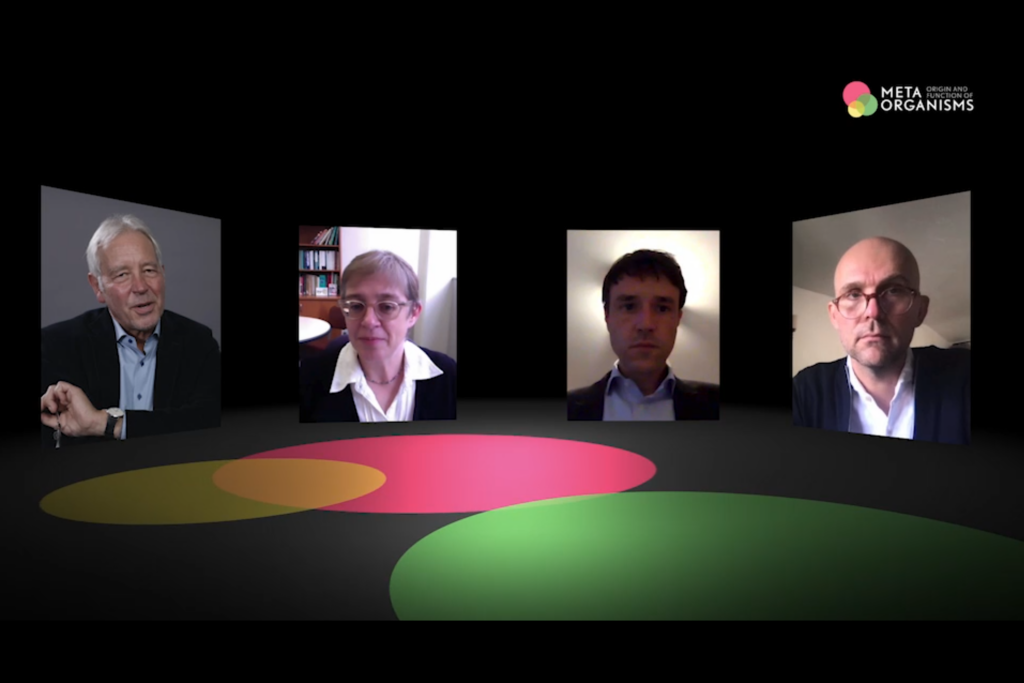Angela Douglas honoured with Karl August Möbius Fellowship 2017
Kiel Collaborative Research Centre opens metaorganism art exhibition to celebrate the award evening
Yesterday, Tuesday 2 May, the Collaborative Research Centre (CRC) 1182 “Origin and Function of Metaorganisms” at Kiel University awarded the newly-created science prize the “Karl August Möbius Fellowship” for the first time. The 10,000 euro prize went to Professor Angela Douglas of Cornell University in the USA, to honour her accomplishments in studying the symbiotic relationship between organisms and microorganisms. Douglas, who is regarded as one of the pioneers in this still-young scientific field, opened on this occasion – together with the CRC – the exhibition “Art of Metaorganisms” at the Centre for Molecular Biosciences (ZMB) at Kiel University. Using impressive pictures, the show conveys the inter-relationships between animals, plants and bacteria, and thus makes the abstract topic of metaorganism research also accessible to non-experts. From today onwards, visitors can see the exhibition from Mondays to Thursdays from 7:30am to 4pm and on Fridays from 8am to 2pm in the foyer of the ZMB.
The prize winner Douglas is professor of physiology and toxicology of insects, and investigates the relationship between microbes and higher life forms at Cornell University. Based on the study of these interactions, she seeks to derive biomedical models, to make the positive impact of bacteria on the health of humans and animals usable. The internationally-renowned scientist is a worthy first winner of this new Kiel science prize, with which the CRC 1182 aims to emphasise the importance of metaorganism research, also on an international level.
“Angela Douglas plays an exceptional role in the new scientific field of metaorganism research. We are proud to honour her as the first prize winner of the Karl August Möbius Fellowship of our Collaborative Research Centre, and furthermore to cooperate closely with her scientifically,” emphasised Professor Thomas Bosch, spokesperson of the CRC 1182. Douglas is a regular guest at Kiel University, and recently spent several weeks researching in Kiel as part of the “Karl August Möbius Fellowship”, in order to exchange ideas and information with the CRC scientists.
Naming the prize after Karl August Möbius is a well-considered choice: in the second half of the 19th century in Kiel, the zoologist and ecologist discovered the concept of biocoenosis – the mutual dependency of different organisms within an integrated community. The current metaorganism researchers in Kiel, and their partners around the world, continue this direction of research initiated by Möbius, by further developing the concept of multi-organismic relationships, and its impact on the health and diseases of humans, animals and plants.
With the “Art of Metaorganisms” exhibition, featuring contributions from researchers of the CRC 1182 as well as international scientists, Douglas and her colleagues from Kiel want to convey their topic to the public through an artistic interpretation. The interaction of the body and microorganisms becomes tangible via aesthetic and expressive images – even for visitors with no knowledge of the subject. The organising team hopes that the exhibition will help us to understand bacteria as an indispensable support for the health and well-being of the human body. This is just one of a number of formats through which the CRC 1182 researchers aim to interface between science and the public.
About the CRC 1182
The Collaborative Research Centre (CRC) 1182 “Origin and Function of Metaorganisms” is working on the issue of how plants and animals, including humans, form functional units (metaorganisms) together with highly specific microbial communities. The aim of the CRC is to understand why and how microbial communities enter into these long lasting connections with their hosts, and what functional consequences these interactions have. In total, CRC 1182 includes around 70 scientists from five faculties at Kiel University, from the GEOMAR Helmholtz Centre for Ocean Research Kiel, the Max Planck Institutes for Evolutionary Biology in Plön and for Marine Microbiology in Bremen.









